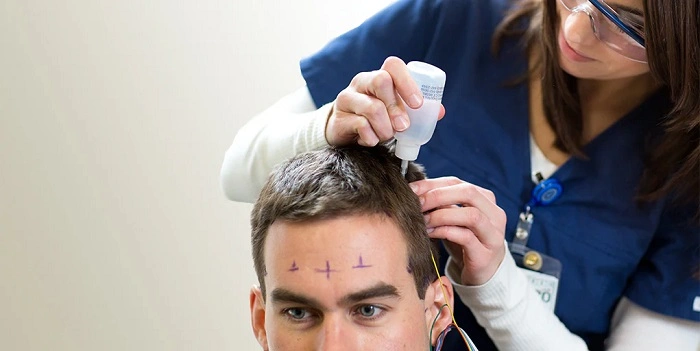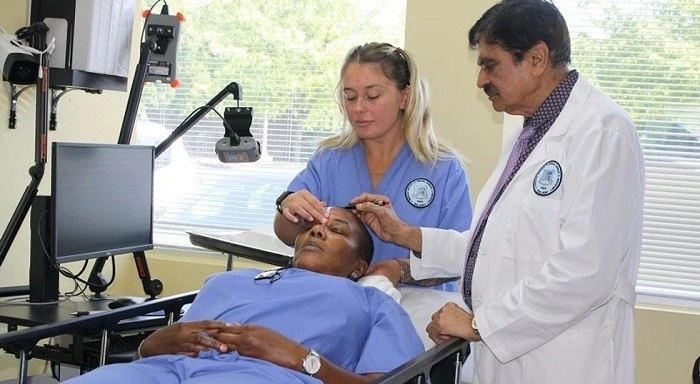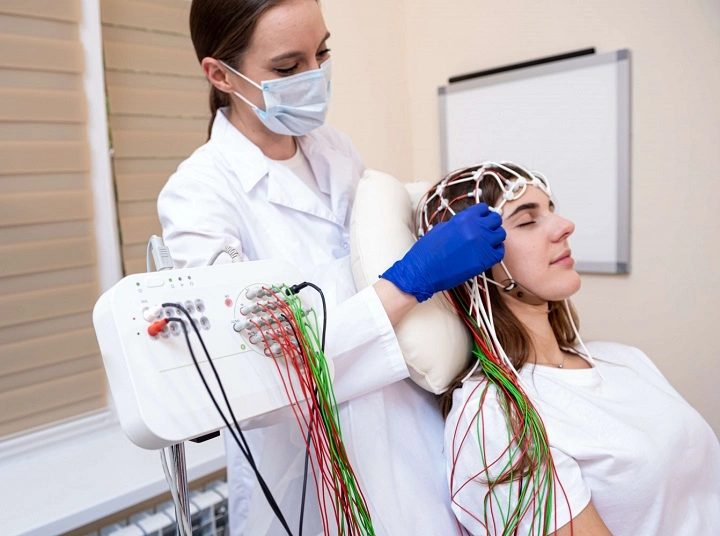The brain and nervous system are the most important organs in the human body. They determine how we move, think, feel, and react to the world. Sometimes, individuals acquire complications. Which are seizures, insomnia, headaches, or nerve pains. Doctors will be forced to conduct special tests so that they can be informed about what is wrong because they will inform them on how the brain and nerves work.
That is where the neurodiagnostic technologists come in. They are medical technologists who are qualified to conduct such tests. They do not perform or prescribe, but they actually assist the physicians quite a bit when it comes time to determine what is going on in the nervous system.
In this blog, we are going to learn about who a neurodiagnostic technologist is, where he or she practices, what he or she can do, what training he or she has received, and why what he or she does is so important to patient care.
What is a Neurodiagnostic Technologist?

Neurodiagnostic technologist (also known as NDT or EEG tech) is a clinical technologist who employs specialized equipment to monitor brain and nerve function. They help physicians diagnose disease such as:
- Epilepsy and seizures
- Sleep disorders
- Brain trauma
- Stroke effect
- Nerve disease
- Brain tumor
Their most important job is storing brain and nerve impulses and giving clean, correct information for physicians to interpret.
What Does a Neurodiagnostic Technologist Do?
A neurodiagnostic technologist performs a number of important functions on a daily basis. Some of the most important functions are:
Electroencephalogram (EEG) Testing
EEG is a diagnostic procedure for testing brain waves.
Technologists place small sensors (electrodes) on a patient’s scalp. They utilize a computer to measure the brain’s electrical activity.
It is utilized in the diagnosis of seizures, epilepsy, and other neurologic disorders.
Sleep Studies (Polysomnography)
Some technologists are employed in sleep laboratories.
They observe overnight sleeping patients to look for sleep apnea, insomnia, or unusual sleeping patterns.
Nerve and Muscle Tests (EMG and NCS)
They assist physicians in tests that ascertain muscle and nerve function.
They detect nerve injury, neuropathy, or a weakened muscle.
Intraoperative Monitoring
Technologists operate from operating room settings.
They monitor a patient’s nervous system, who has the brain or spine being operated on, so that it does not get injured.
Patient Preparation and Care
They inform patients about what is being tested.
They reassure and comfort patients during the test.
They prepare skin, apply electrodes, and position equipment for best results.
Data Report and Recording
They analyze test results and identify error-free or noise-free recordings.
They provide this information to physicians, who interpret and diagnose.
Skills of a Neurodiagnostic Technologist

To do the job effectively, neurodiagnostic technologists need technical skills and interpersonal skills. Some of which are:
- Attention to detail: Nerve and brain impulses are delicate and fine. The technologist needs accurate results.
- Patience: The tests take long, and patients are nervous or restless.
- Communication skills: They need to explain procedures to patients in a manner they can comprehend, and calm them down.
- Technical skill: They must be able to work high-level equipment and also fix the same.
- Teamwork: They have direct affiliation with doctors, nurses, and other health care professionals as a unit.
- Problem-solving: If the electrode does not record a good signal, they have to determine the problem and fix it immediately.
Training and Education
Some specialized training and education must be undergone in order to work as a neurodiagnostic technologist. That’s basically the sequence:
- High School Diploma – Course emphasis in math, physics, and biology.
- Formal Training Program – The majority have a 1–2 year college certificate in neurodiagnostic technology. A few are associate degrees.
- On-the-Job Training – Employee in-house training with direct supervision in a few hospitals.
- Certification – The preferred standard of most employers. Most frequently used is the ABRET (American Board of Registration of Electroencephalographic and Evoked Potential Technologists). Certifications are:
- R. EEG T. (Registered EEG Technologist)
- RPSGT (Registered Polysomnographic Technologist)
- CNIM (Certification in Neurophysiologic Intraoperative Monitoring)
- R. EEG T. (Registered EEG Technologist)
- Continuing Education – Technologists are brought up to date with courses and workshops. As technology and medicine keep evolving too.
Where Do They Work?
They are employed in numerous health care centers. Such as:
- Hospitals (operating rooms, sleep centers, neurology departments)
- Outpatient clinics
- Research labs
- Special sleep units
- Rehabilitation centers
They may work alongside neurosurgeons, neurologists, sleep doctors, and other experts.
Why is Their Role Important?
They play an essential role in patient care. As their examinations allow doctors to identify what is malfunctioning in the brain and nervous system. They do it without having to perform surgery. Their examinations can:
- Signal early warning of seizure disorders
- Assist in treating epilepsy
- Diagnose sleep apnea and improve sleep quality
- Track nerve function in the operating room
- Assist in recovery from stroke or head injury
Physicians would have fewer data to base treatment on without these tests.
To patients, neurodiagnostic technologists are usually the first individuals that they will ever meet when they are undergoing brain or sleep tests. They play a very vital role in soothing and consoling patients.
The majority of patients are apprehensive before undergoing such testing, particularly children. A skilled technologist will inform them how it is conducted, introduce them to the equipment, and help the patient relax. Such confidence results in tension-free tests and improved results.
Prospect of Career
There is higher demand for neurodiagnostic technologists. Increasing numbers of patients are getting diagnosed with epilepsy, sleep disorders, and nerve disorders, so there is increased demand for such individuals at hospitals and clinics too.
- Job Growth: They are among the health technologists who are categorized by the U.S. Bureau of Labor Statistics and show massive growth in the years ahead.
- Salary: Varies with experience and geography but most are between $45,000 and $70,000 annually. Very specialized technologists are compensated more.
- Advancement: Technologists can advance to intraoperative monitoring specialists following further training and certification or teaching or supervisory roles.
Job Challenges
As with much health care career, there are disadvantages of a neurodiagnostic technologist career:
- Long or evening shifts, especially in sleep labs
- Emotionally difficult cases, i.e., seizure children
- Physical stress of standing or working with patients for hours at a time
- Stress to obtain results as accurate and perfect as possible
Even with the down sides, most technologists believe it’s all worth it because they allow patients to live healthier lives.
Future of Neurodiagnostic Technology
Neurodiagnostic testing technology is becoming more sophisticated at an increasing and increasingly rapid pace. Some of the following are likely to be utilized in the future:
- Portable EEG machines – even patients can be monitored at home.
- Wireless electrodes – minimizing pain test even further.
- Artificial intelligence – to accelerate diagnosis of seizures or sleep disorders.
- Telemedicine – to facilitate remote reading of EEG and consulting.
All these will render neurodiagnostic tests more accurate and simple to perform.
Neurodiagnostic technologist is less famous than physicians and nurses, but they are definitely required in modern medicine. They are the ones tasked with recording and measuring electrical signals of the brain and nervous system so that the physicians can diagnose and treat life-threatening illnesses such as epilepsy, sleep apnea, stroke, and nerve disease.
They take technical skill and knowledge to walk patients through sometimes challenging procedures. Increased demand, stable job prospects, and changing technology make neurodiagnostic technologists a rewarding and challenging career.
They tend to be the behind-the-scenes unsung heroes for patients, providing physicians with accurate information so that they may provide their best care. They are the physical connection between the patient’s nervous system and the physician’s diagnosis.


